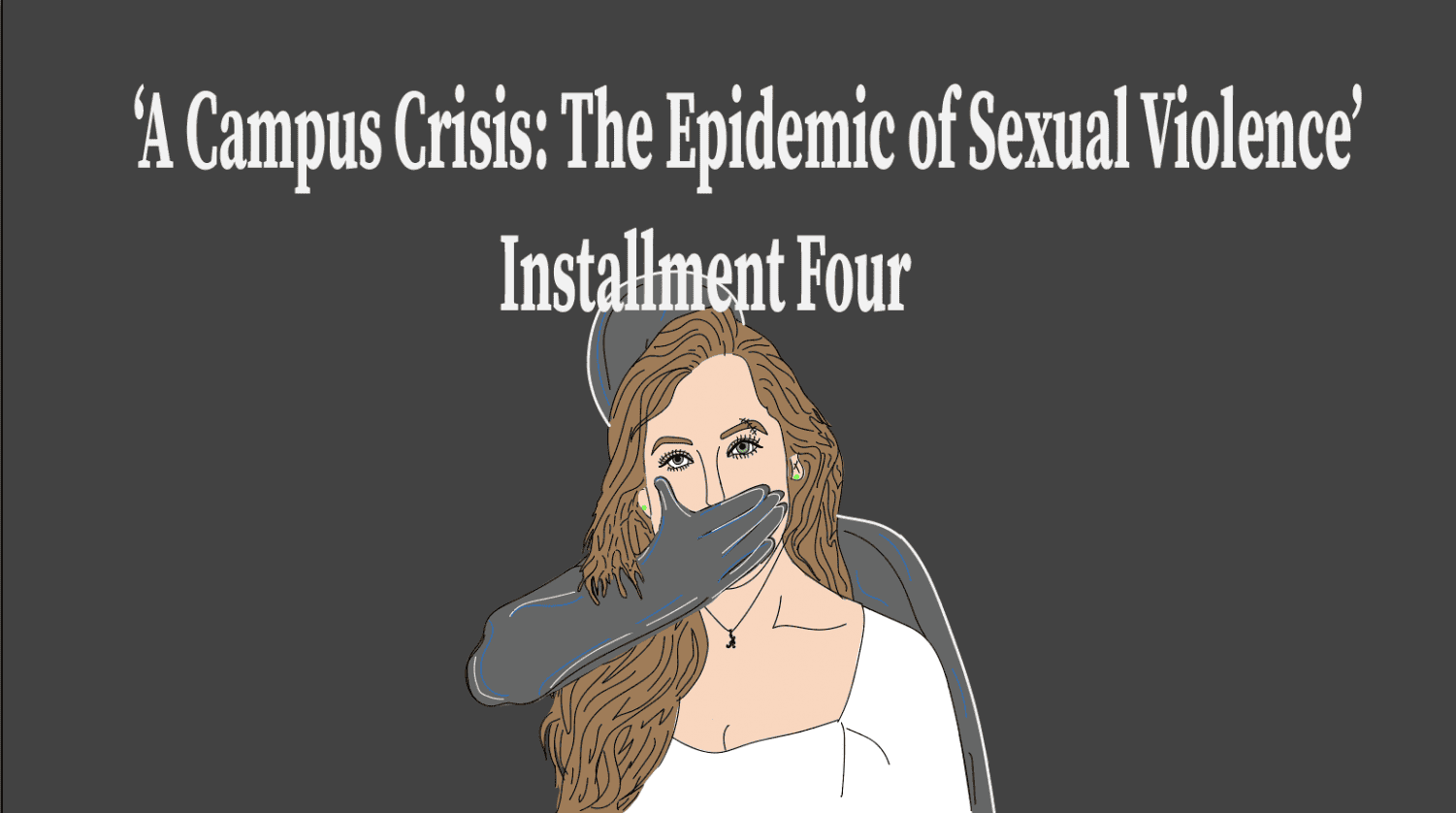Opinion | ‘A Campus Crisis’ Installment Four
This is the fourth installment in a five-part series about rape and sexual assault on college campuses. Over the course of this series, readers will hear from organizations dedicated to combating sexual violence on The University of Alabama’s campus. This installment highlights the Tuscaloosa Safe Center, “a 24/7 sexual assault crisis center focusing on providing the best care possible to survivors of sexual assault.”
July 21, 2021
The Ongoing Nature of Consent: Avoiding Retraumatization
The words of Tarana Burke (#MeToo) that were shared almost 15 years ago and took hold en masse in 2017 resonate with survivors everywhere, within deeply personal traumas told and untold. Those traumas, when spoken publicly, reiterate to survivors that they are not alone, that they will not be dismissed or prevented from reclaiming their lives. Understanding the powerful resonance of this message is crucial to our collective response not only to the cultures that create survivors, but also to how we respond to and support these survivors.
As students, administrators, faculty, colleagues, friends and family of survivors, we are beginning to learn the importance of creating a safer community and environment for each other. The earliest interventions must be centered on consent, an understanding of which we are rightfully promoting within our university and larger community.
But what of those survivors whose consent has already been violated?
Our responsibility to those survivors is to understand that consent is ongoing. We must continue to practice this by respecting survivors’ personal boundaries, privacy and truths. Violating consent only serves to retraumatize those who have entrusted their story to us.
Retraumatization following sexual assault can happen at any moment when a survivor reexperiences feelings or reactions similar to or associated with their assault. This retraumatization is often described as “triggering” a survivor and can happen consciously or unconsciously.
Many retraumatizing events relate to sensory input — lighting, smell, imagery — that returns survivors to the circumstances of the assault and can sometimes be unavoidable. However, many stressors that cause retraumatization are centered around experiences or environments which mimic the dynamics of the assault — namely, loss of control and safety.
When someone entrusts the story of their assault to us, we must tread carefully in that space. The survivor, in sharing their story, begins to reclaim control over their personal situation. We must respect their truth and their control over that truth. We shouldn’t question the validity of their story or emotions.
Doubting only reinforces powerlessness, worthlessness or inferiority that stem from the assault. This is how support sounds: “I believe you.”
Reclaiming power and control includes the respect of the survivor’s privacy. They must not lose control of their story. They have consented for you to hold that truth and to not share it with others. Inherent in this is the survivor’s control over how they should share their story with others, whether that be medical professionals, law enforcement, university officials or family members.
Feeling angry at the perpetrator and wanting to protect the survivor is a normal response, but threatening violence against the perpetrator can make the survivor feel more disempowered. This is how support sounds: “You can trust me to keep this private,” and “Are you open to seeking medical care or counseling?” and “Are you open to telling the police/school officials?”
It is critical to avoid pressuring a survivor into action like going to the police or getting a forensic medical exam to collect evidence. If a survivor chooses to take action, they need to receive trauma-informed care to minimize the risk of retraumatization.
At the Tuscaloosa SAFE Center, we provide forensic medical exams, counseling, support groups and other support services to anyone affected by sexual assault in the nine counties of West Alabama. If a survivor wants to have evidence collected up to three days after an assault or receive a medical exam to determine if they were physically harmed in the assault, we have trained nurses and advocates on call 24/7.
We provide counseling and support groups for anyone affected by assault, regardless of how long ago it occurred. We are guided by the principle that survivors can withdraw consent to any portion of their medical care at any point. As part of our trauma-informed care model, we walk alongside the survivor in their healing journey rather than attempt to lead them down a course of action.
If you work in the medical profession, are a member of the University’s faculty or staff, or are a member of law enforcement or any other profession where there is a power differential between you and survivors, please remember this power differential alone may retraumatize survivors. Survivors who have been taught to be compliant to authority figures may feel pressured to comply with your wishes, even if you intend to give them autonomy. In these settings, it is especially important to be non-directive and non-judgmental whenever possible.
Survivors are often forced to develop coping mechanisms during the aftermath of the assault, especially if they lived through complex trauma such as long-lasting child abuse. You can ask for consent before sharing someone’s story, let them know what will happen during any health exams or meetings, and remember that the survivor is the authority on their own life.
The survivor who has shared their story with you has entrusted you to listen, to take them seriously and to give them space to share their feelings. They have not consented for you to label, pathologize, assess or judge their emotional state. This can mean listening without asking too many questions, not interpreting their feelings for them, and sharing available resources for counseling.
In short, it means showing humility and empathy. It is important to realize that healing is not linear, and that everyone’s path will be different — it’s not your job to know or to decide the best path for someone else. Survivors will have good days and bad days, just like you. This is how support sounds: “This doesn’t change how I see you,” and “How can I support you right now?”
The Tuscaloosa SAFE Center serves the nine counties of West Alabama (Bibb, Fayette, Greene, Hale, Lamar, Marengo, Pickens, Sumter, and Tuscaloosa). We provide sexual assault forensic exams, counseling, support groups and other resources to survivors and their loved ones regardless of how long ago the assault was. If you need counseling services, please contact Fran Jones, our therapist, at (205) 737-5113 or [email protected]. If you need survivor advocacy or community resources, please contact Theo Longlois at (205) 737-5449 or [email protected].

